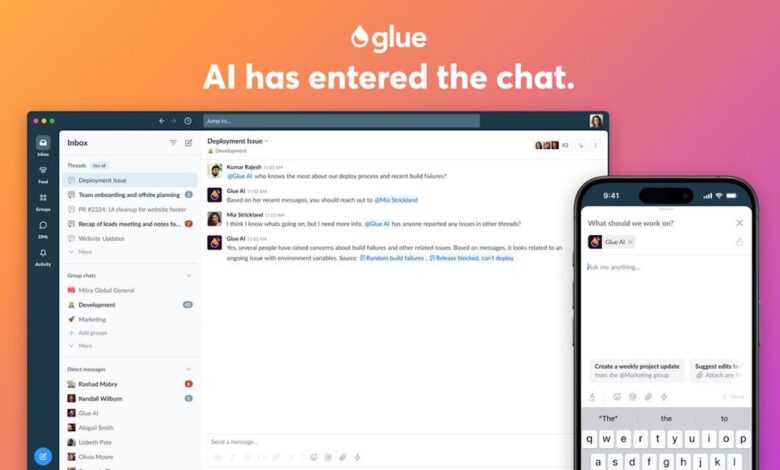David Sacks Debuts Work-Oriented AI Chat Platform Glue

Podcaster and venture capitalist David Sacks launched a business-oriented artificial intelligence firm dubbed Glue.
“Glue takes the best of both worlds from AI chat platforms like ChatGPT and human chat platforms like Slack,” Sacks and Co-founder Evan Owen wrote in a company blog post Tuesday (May 14), the same day the platform debuted. “The result is a new tool built for the way people want to collaborate today, with both their colleagues and AI in one place.”
While ChatGPT has shown that AI “works best in a threaded chat format,” it is also “single-player,” making it tough to collaborate, according to the post. With Glue, users can initiate a chat with AI and then invite coworkers or add AI to an in-progress conversation with team members.
“The AI functions like a virtual team member, with all of the context from previous messages, attachments and app integrations,” the post said. “This means it can provide unique insight not available elsewhere, such as who on the team has the expertise you’re looking for, how someone is contributing to a project, or an analysis of how a shared document impacts the conversation.”
The PYMNTS Intelligence report “High Impact, Big Reward: Meet the GenAI-Focused CFO,” found that 60% of companies see generative AI as the most significant technological innovation of our time.
While all surveyed enterprises — companies with at least $1 billion in revenue — reported using the technology, the way these companies use GenAI varies.
“Most companies use GenAI for routine and less risky tasks, such as summarizing information or accessing a catalog,” the report said. “On average, all surveyed companies reported that they use the technology for at least three routine or medium complexity tasks.”
Only 30% of companies are taking full advantage of using multiple strategic GenAI applications. These are applications that can make a high impact, such as monitoring multiple processes, performing assessments based on diverse inputs or generating new content.
“Curiously, the firms that used more high-impact GenAI applications did not necessarily invest more,” PYMNTS wrote. “Firms with a high total impact score — meaning they used more strategic and complex GenAI applications — invested 25% less on the technology than those using less strategic applications that landed in the middle in terms of impact.”
For all PYMNTS AI coverage, subscribe to the daily AI Newsletter.



